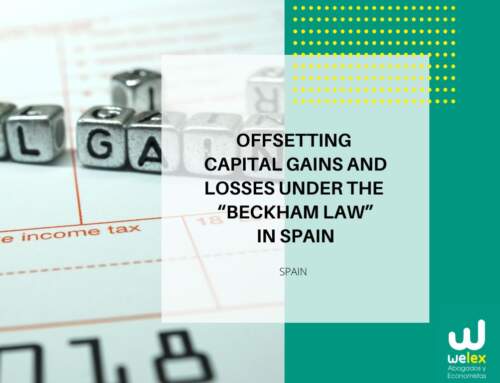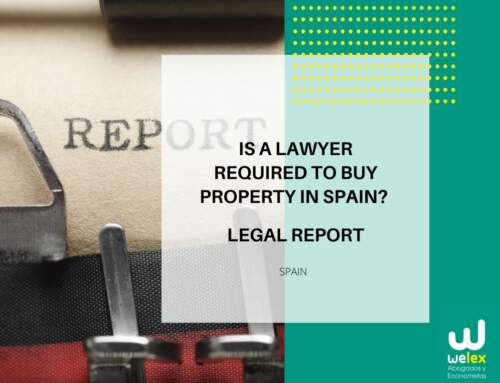The tourist rental market in Spain has grown significantly in recent years, becoming an increasingly popular option for homeowners seeking to generate income through tourism. According to the National Institute of Statistics (INE), in August 2021, there were 144,128 tourist apartments in the country, with an occupancy rate of 85.2%. However, by November 2024, this figure had risen to 368,000, an 8% increase compared to the summer of 2023. This growth has led to increased regulation of the sector, with new laws aiming to balance the impact of tourist rentals on residential housing.
In this context, at Welex, Law and Economics Firm in Marbella, we advise property owners on the legal implications of these restrictions, ensuring they can manage their properties within the regulatory framework and protect their investment in Spain.
Changes in the Tourist Rental Legislation in Spain
In previous blog posts, we have analyzed the limitations that homeowners’ associations can impose on tourist rentals and their application. This time, we bring you information on new legislation that will come into effect on April 3, 2025, bringing significant changes for property owners:
Homeowners will need the approval of the homeowners’ association to rent out their property for tourism purposes.
The regulation of tourist rentals in Spain has taken a turn with the recent amendment of the Horizontal Property Law (LPH) through Organic Law 1/2025, of January 2, introducing key changes that directly affect homeowners renting out their properties for tourism.
One. A new section 3 is added to Article Seven, with the following wording:
“3. The owner of any dwelling who wishes to carry out the activity referred to in letter e) of Article 5 of Law 29/1994, of November 24, on Urban Leases, under the terms established in the sectoral tourism regulations, must first obtain the express approval of the homeowners’ association, as set forth in section 12 of Article 17 of this Law.
The president of the community, either on their initiative or at the request of any owner or occupant, shall require the immediate cessation of such activity if it has not been expressly approved, under the warning of initiating the appropriate legal actions, in accordance with the provisions of the previous section.”
This article establishes the obligation for any homeowner wishing to rent their property for tourism purposes to obtain the express approval of the homeowners’ association. Furthermore, the community president can request the cessation of tourist rentals if they are carried out without explicit consent.
Two. Section 12 of Article Seventeen is modified as follows:
“12. The express agreement approving, limiting, conditioning, or prohibiting the activity referred to in letter e) of Article 5 of Law 29/1994, of November 24, on Urban Leases, under the terms established in the sectoral tourism regulations, whether or not it involves modifying the constitutive title or bylaws, will require the favorable vote of three-fifths of all homeowners, who must also represent three-fifths of the participation quotas.
Likewise, this same majority will be required for agreements establishing special expense quotas or an increase in the contribution to common expenses for properties engaging in this activity, provided that such modifications do not exceed a 20% increase. These agreements will not have retroactive effects.”
This second amendment clarifies that homeowners’ associations must approve tourist rentals with a three-fifths majority vote of both homeowners and community participation quotas.
Three. A new second additional provision is added, with the following wording:
“Second Additional Provision. Any property owner engaged in the activity referred to in letter e) of Article 5 of Law 29/1994, of November 24, on Urban Leases, before the entry into force of the Organic Law on Measures for the Efficiency of the Public Justice Service, and who has previously complied with sectoral tourism regulations, may continue their activity under the conditions and timeframes established therein.”
New Modifications to the Horizontal Property Law in Spain
The last change introduced by Organic Law 1/2025, of January 2, establishes a new Second Additional Provision, allowing owners already engaged in tourist rentals before April 3, 2025, to continue without requiring approval from the homeowners’ association.
In summary, any homeowner wishing to rent their property for tourism purposes after this date must obtain approval from the homeowners’ association. However, individual approval for each apartment is not necessary; a general approval by the community will suffice.
Other Requirements for Tourist Rentals in Spain
To engage in tourist rentals, homeowners must comply with the requirements set forth in Decree 28/2016, of February 2, on properties for tourism purposes, modified by Decree 194/2010, of April 20, on tourist apartment establishments. Some of these requirements include:
- First occupancy license.
- Registration of the property as a tourist rental in the Andalusian Tourism Registry.
Digital One-Stop Window: A Step Further in Regulation
The Spanish Government continues advancing in the regulation of tourist rentals with the implementation of Regulation (EU) 2024/1028 of the European Parliament and Council, of April 11, 2024, and the enactment of Royal Decree 1312/2024, of December 23.
This decree introduces the Digital One-Stop Window for Rentals, a single registration system for all properties intended for tourist, temporary, and room rentals in Spain. Although it came into force on January 2, 2025, its effects will begin to apply on July 1, 2025.
The goal of the Digital One-Stop Window is to guarantee transparency and legal security in the sector, combat illegal rentals, and provide greater control over short-term leases.
Welex: Your Trusted Partner for Managing Vacation Rental Taxes in Spain
The new regulations on tourist rentals in Spain represent a significant change for property owners, particularly for non-residents. Ensuring compliance with legal and tax requirements is essential to avoid penalties and safeguard the profitability of your investment.
At Welex, Law and Economics Firm in Marbella, we provide a comprehensive service for managing taxes derived from tourist rentals for non-residents, as well as handling the tourist rental license application.
If you would like more information about this process, please visit our blog on Tourist Rental Licenses.
Contact us for personalized advice and ensure that your property complies with current regulations. We are here to help you manage your investment safely and securely!






Social Media